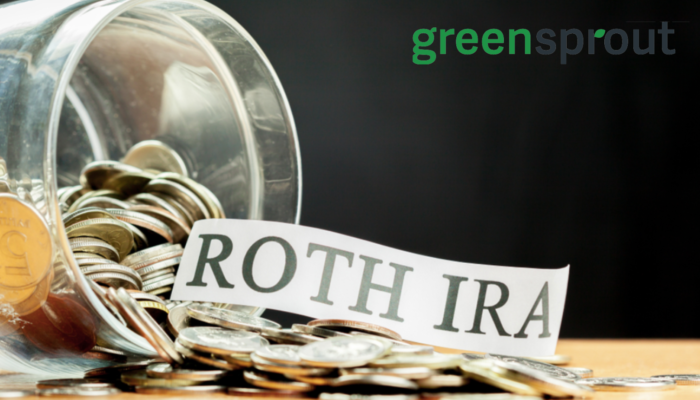Your Roth IRA account is a tax-advantaged retirement account that allows you to contribute money after tax. It is encouraged and beneficial because your contributions and earnings can grow and be withdrawn tax-free once you attain the age requirement of 59½ years if the account has been open for at least five years.
GreenSprout is committed to helping you make the best financial decisions for your future. The GreenSprout team has outlined all you need to know to understand your Roth IRA.
Investments Allowed In Your Roth IRA
A Roth IRA allows a variety of investment options. These are exchange-traded funds (ETFs), bonds, stocks, Certificates of deposit, mutual funds, money markets funds, and cryptocurrency. In addition to the above, you can contribute assets such as investment real estate, tax liens, partnerships, a franchise business, and even gold.
Although you cannot directly contribute cryptocurrency to your Roth IRA, you can do so with Bitcoin IRAs. You can also not contribute derivative trades and life insurance contracts to your Roth IRA.
For a wider choice of investment options, GreenSprout recommends using a Roth Self-Directed IRA that allows you to manage the investments in place of the financial institution.
When You Can Withdraw From Your Roth IRA
Your Roth IRA earnings will be subject to penalty if you wish to withdraw from it when you are below the age of 59½ years or haven’t attained the five-year rule. However, if you only wish to withdraw the amount you have contributed, you can withdraw the exact amount anytime within the tax year, both penalty and tax-free.
The conditions under which you can withdraw your account earnings, and it will be considered an equal distribution, include:
- The distribution must occur at least 5 years after the establishment and first funding of your Roth IRA.
- The holder is at least 59½ years old when the distribution occurs.
- The distributed assets are for buying, building, or rebuilding a first home for the account holder or a qualified family member such as a spouse, child, grandchild, or parent).
- If the Roth IRA holder becomes permanently disabled.
- If the Roth IRA holder dies, the assets are distributed to the beneficiaries.
If you meet the five-year rule but are below 59½ years old, your earnings will be subject to taxes and penalties. You may be able to avoid this if the earnings are used to purchase the first home for yourself or a qualified family member, if you pass away, or if you have a permanent disability. But, if you are above 59½, you will not encounter any penalties or taxes.
However, your earnings may be subject to penalties and taxes if you do not meet the five-year rule and are not yet 59½ years old. If it is for the purchase of a first-time home, unreimbursed medical expenses, if you pass away and your beneficiaries take the distribution, for qualified education expenses, or if you have a permanent disability, then you may be able to avoid the penalty, but not the taxes.
But, if you are above the age of 59½ years, your earnings will be subject to taxes but not penalties.
